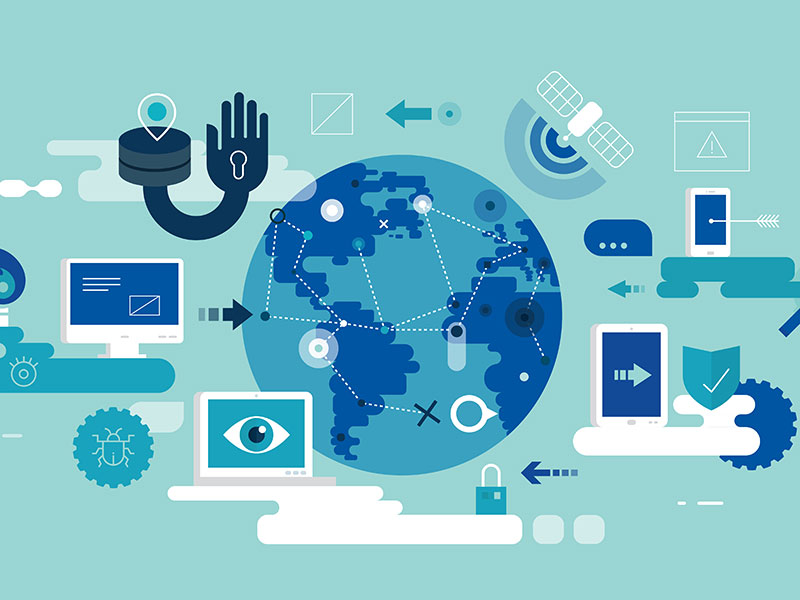
Author: Gareth Williams, Vice President of Secure Communications and Information Systems, Thales UK
Top 5
We live in an increasingly connected world. Technologies such as big data, artificial intelligence and the Internet of Things are growing year on year in both prevalence and capability. But with greater connectivity comes greater risk; while integrating innovative technologies has myriad benefits for any business, it also exposes it to the possibility of cyberattacks. If a firm is sharing information via online networks, for example, any resourceful hacker with an internet connection could also gain access to said data, regardless of how well protected you think it may be.
In the modern era, it’s not enough to simply reinforce firewalls and update antivirus software. Unidentified gaps in security are likely to be left unprotected, making them an easy and undetectable entry point for cybercriminals. All is not lost, however: there are a number of simple steps companies can take to ensure they are exploiting the full capabilities of technology without falling victim to its frailties.
System update
There’s no denying that maintaining access to a wide range of information networks boasts countless advantages: it can reduce costs, increase organisational agility, improve decision-making and open new revenue streams for corporations of all shapes and sizes. Just like every other area of business, data management is constantly changing. As such, it’s imperative that companies keep pace, whether that’s by updating key sources used to collate data or changing the way information is stored internally.
In five years, our world will be different; in 10 years, it will be unrecognisable
Similarly, cybersecurity is a never-ending process. Any lapse in antivirus protection renewal or network filter updates is like giving hackers a master key to the information a business has so carefully collated and stored. It is essential, therefore, that companies invest in robust protection systems.
The best way to keep up to date with cybersecurity technologies is to engage a firm of digital protection specialists. Not only will they guarantee that security systems are resilient enough to withstand even the craftiest of cybercriminals, they’ll also provide guidance on best-use practices to ensure technological infrastructures are used to their full potential. Importantly, companies must engage cybersecurity firms specialising in their particular market. This will ensure they have the appropriate knowledge to prepare the business for anything that crosses its path.
Digital defences
To counteract the increased cyberthreat landscape, security firms are continually introducing new technologies to the market. Identity warrants, for example, assign connectable devices a unique and unalterable cryptographic identity. This technique is accomplished by using the unclonable features of silicon devices or by injecting private keys into tamper-resistant zones within hardware devices.
Often incorporated as an automated step in the manufacturing process, identity warrants bring greater security to many operations, including the upgrading of remote software, the management of connected devices, the prevention of illegal connections, and collaboration with third parties. They make it practically impossible for any device to be cloned and are a great hardware consideration for any business.
On the software side, blockchain has become a much-hyped technology within the cryptocurrency world, but it can actually be used to safeguard any sort of data. Each block in the chain is an unalterable, permanent and publicly accessible set of data. As a result, everyone can see new data when the chain is updated, safe in the knowledge that the information is true. This can be particularly useful in cases where trust is already low – when competitors collaborate on a high-value project, for example.
Public-key cryptography, meanwhile, is used for the fast, secure transmission of data on a large scale. It must be supported, however, by a complete and trusted set of policies and procedures governing the creation, management, distribution, issue, storage and revocation of digital certificates – the so-called public key infrastructure.
There is no doubt that we are going to see substantial changes in the age of digital disruption. You can expect to see increased supply chain efficiency and accountability, ‘just-in-time’ maintenance, easier collaboration and the more effective use of assets. In five years, our world will be different; in 10 years, it will be unrecognisable.
We have the technology; the demand is clear. All that is required to open the door to this bright new future is digital trust.

